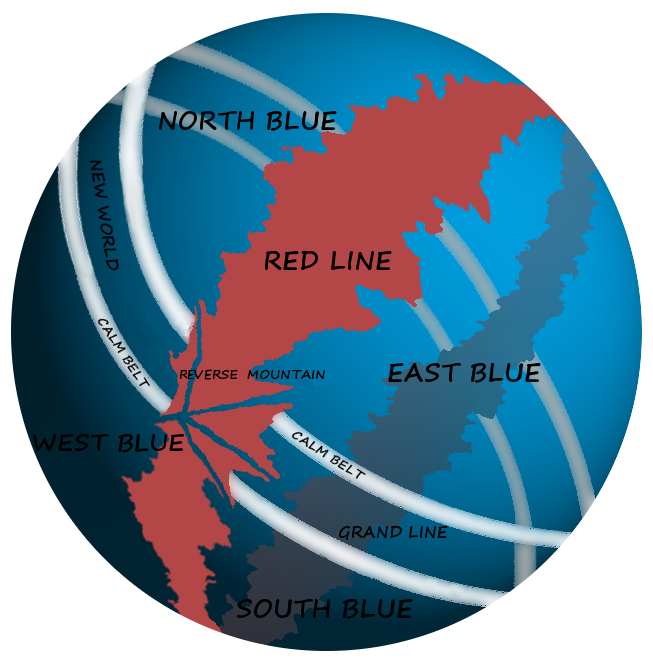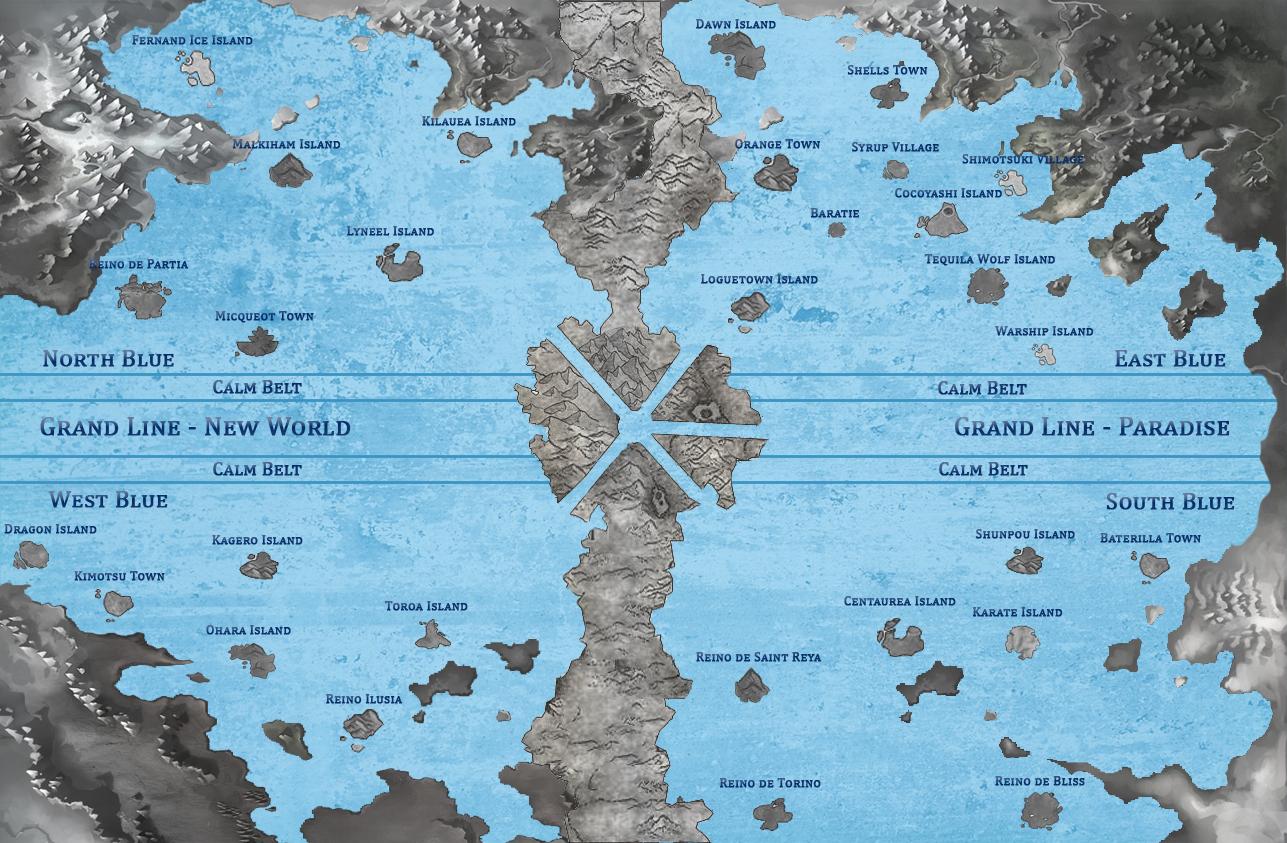Pursuing Your Dream
Learn from Luffy’s crew in One Piece about the essence of having and following a dream. This week’s issue is about translation issues with religious writings, depression, and climate science.

One Piece was one of my favorite series when I was a kid. Originally it emerged as a manga created by Eiichiro Oda in 1997. Mangas are the Japanese equivalent of Western comics or graphic novels, typically hand-drawn stories in book or magazine format. The One Piece manga was soon converted into an anime. Animes are the Japanese equivalent of Western animations or cartoons (although in Japan anime describes all kinds of animated works, regardless of style or origin).
I was never a manga or anime fan in particular. Nevertheless, One Piece is not just by far the best-selling manga series and best-selling comic series in history ahead of Asterix, Lucky Luke, and Peanuts, it has also received many awards as well as exceptional critics and reviews.
Amongst all the valuable lessons conveyed in the One Piece story, one stands out. It is a recurring mantra-like theme that permeates over 100 manga volumes and 1,000 anime episodes in various scenarios and social constellations:
The fundamental difference between having a dream and pursuing it.
The main storyline describes the adolescence of a boy named Luffy who dreams of becoming a pirate and sailing across the most dangerous ocean (the Grand Line) to find the mysterious and biggest of all treasures (the One Piece). It is set in a fictional world inhabited by a wide range of common and fictional species, some endowed with supernatural powers.
The world consists of the four oceans North Blue, East Blue, South Blue, and West Blue, separated by one single large vertical landmass (the Red Line). At its equator, there is one of the only two access points (the Reverse Mountain) to the fifth ocean (the Grand Line) which spans around the globe along the equator. At its north and south edges it is separated from the four Blues by regions (the Calm Belts) that can’t be sailed due to lack of winds and their monstrous inhabitants (the Sea Kings).


On his journey, Luffy encounters the most diverse characters who become either friends or enemies, which depends on the qualities of their dreams. The key aspect of the series is the recurring pattern of the manifestation or termination of each character’s dream.
Each subset storyline generally follows the same pattern: Luffy and his crew explore a new island or location and get confronted with characters that are somewhere on the path to manifesting their individual dreams.
Some of them are not yet aware of their dream, some pursue their dream, some have abandoned their dream, some got off course with their dream, and some have manifested their dream.
All these dreams are characterized by either serving a noble cause or an aspect of self-exploration and development or serving a purely selfish objective based on the exploitation or manipulation of other beings.
As each subset storyline unfolds Luffy’s crew engages with the dreams of each character it encounters:
- They help the ones not yet aware of their dream to discover it.
- They either side with or oppose the ones who pursue their dreams depending on whether or not this dream is aligned with the story’s general morality (support vs. exploitation of others).
- They support the ones who have abandoned their dream to overcome specific obstacles and encourage them to believe and re-pursue it.
- They help the ones who got off track to remember why they started pursuing their dream in the first place and let go of excuses and distractions.
- The ones who have manifested their dream typically appear as guides, helpers, or teachers.
This is the very aspect I love about this story. It relentlessly repackages and repeats the same message over and over again:
- Discover your dream.
- Pursue your dream. Continuously assess whether your dream serves yourself and others or creates hardship and misery.
- Believe in your dream when the journey gets tough.
- When you get off track, refocus on your dream.
- Learn from others who have followed their dream to the end.
I highly recommend diving into this fantastic story—provided you’re willing to risk spending hundreds of hours with the anime series or digging through as of now 106 volumes of mangas. Although it all started over a quarter of a century ago the story is not even completed yet. Otherwise, I can also recommend the recent Netflix life action adaption of One Piece. Season one tells the story of how Luffy gathers the core team of his crew in the East Blue up until the point where they embark to sail to the Grand Line. Admittedly, I subscribed to Netflix for a month just to watch this series.

All in all one of the most important life lessons is to spend as much time as needed to uncover one’s dream and then to not stop short, but to forge a plan to pursue it.
And it all starts with answering the one question: Who am I and what do I want?
Have a phenomenal week!
⏤Ferdinand
✨ Sparks
📝 Article: (mis)Translating the Buddha
The way Buddhism has been transmitted to the West is in many ways incomplete, inaccurate, or outright wrong. One of the main reasons for this is the inaccurate translation of Sanskrit and Pali terms into Roman languages. Because such inaccuracies obscure actual understanding in a field where accuracy of practice is essential it causes much more harm than it helps.
Many of the English words we use to describe Buddhist concepts, such as desire, suffering, enlightenment, etc. actively inhibit us from grasping the underlying concepts.
By default, the mind becomes stuck to mental representations that have more to do with our desires than how things really are. This leads to aversive experiences of emptiness, hopelessness, worthlessness, helplessness when we bump into evidence about how confused we are. We come up with plans for avoiding these experiences, but these plans don’t really work, leading us to repeatedly encounter flashes of the undesired experiences. Our response is to try to push on the plans even harder, which doesn’t work. But once we get wise to this process we can incline in the opposite direction, pushing less hard on experience. The relief from doing this wakes us up to the idea that we’ve been fueling the above vicious cycle and live in a house built from these sorts of knots of confusion. Instead of trying to hold the house together with constant maintenance while simultaneously trying to find the exact right decorations, we start tearing down the house. We discover that the very idea that we needed an unchanging, beautiful house that definitely belongs to us was just another of the confused knots. House building, maintenance, and dwelling becomes just another human activity that can be engaged with or not as is convenient. As these activities were previously taking up huge amounts of our attention and resources, we find ourselves much more relaxed and able to enjoy things. Because others still live within the paradigm of seeing everything as related to houses, they are inclined to perceive you as living in a shiny spiritual house, and try to figure out which sets of maintenance activities and decorations will grant them these ‘spiritual’ advantages.
(There’s a joke in here somewhere about house-holders)
Translating%20the%20Buddha%20-%20Preview%20Image%20(subtle).png)
📝 Article: A few thoughts on depression
Intimate and insightful journey into the world of depression, which provides an important perspective for relatives and friends as well as tips and encouragement for people affected by this condition.
Depression is like cancer - once you have it, it remits, possibly forever, but you are never "cured". Relapses are not certain, but the danger will always be there. Therefore, after recovering from a depressive episode, a depressed person must change his or her life completely and permanently. The things that you did to get out of depression, you must never stop doing for the rest of your life. You must permanently place a greater emphasis on human contact and on meaningful, positive, healthy relationships of all kinds. You must constantly think about what makes you happy and how to get it, and you must constantly take steps toward a positive future that you envision for yourself. If you allow yourself to coast, or get stuck in a rut, you will fall back into the pit and have to start all over again. And if therapy helped you, keep going to therapy forever.

🧬 Science: World Climate Declaration
World Climate Declaration with the title “There Is No Climate Emergency”, supported by a global network of over 1,800 scientists and professionals.
The vast majority are well-established professionals including Professors, PhDs, and long-time practitioners and scientists in the fields of physics, geology, atmospheric chemistry, geography, engineering, meteorology, biology, radiology, astronomy, agriculture, hydrogeology, and seismology from well-known institutions such as MIT, Harvard, or NASA, including two Nobel laureates in physics.
Direct pdf link here.
Climate science should be less political, while climate policies should be more scientific. In particular, scientists should emphasize that their modeling output is not the result of magic: computer models are human-made. What comes out is fully dependent on what theoreticians and programmers have put in: hypotheses, assumptions, relationships, parameterizations, stability constraints, etc. Unfortunately, in mainstream climate science most of this input is undeclared.
To believe the outcome of a climate model is to believe what the model makers have put in. This is precisely the problem of today’s climate discussion to which climate models are central. Climate science has degenerated into a discussion based on beliefs, not on sound self-critical science. We should free ourselves from the naïve belief in immature climate models. In future, climate research must give significantly more emphasis to empirical science.
Recently, John F. Clauser, winner of the 2022 Nobel Prize in Physics for his work on quantum mechanics, joined the circle of supporters. In the announcement by the CO2 Coalition about Clauser’s election to the Board of Directors he was quoted as follows:
The popular narrative about climate change reflects a dangerous corruption of science that threatens the world’s economy and the well-being of billions of people. Misguided climate science has metastasized into massive shock-journalistic pseudoscience. In turn, the pseudoscience has become a scapegoat for a wide variety of other unrelated ills. It has been promoted and extended by similarly misguided business marketing agents, politicians, journalists, government agencies, and environmentalists. In my opinion, there is no real climate crisis. There is, however, a very real problem with providing a decent standard of living to the world’s large population and an associated energy crisis. The latter is being unnecessarily exacerbated by what, in my opinion, is incorrect climate science.

💡 This Week’s Wisdom
Culture tends to argue that it forbids only that which is unnatural. But from a biological perspective, nothing is unnatural. Whatever is possible is by definition also natural. A truly unnatural behaviour, one that goes against the laws of nature, simply cannot exist, so it would need no prohibition.
From Sapiens by YUVAL NOAH HARARI.
Captured and resurfaced using the phenomenal Kindle reader.
Did you enjoy this issue? If you draw value from Sunday Sparks please consider contributing to this publication’s financial freedom.
Flows straight into content, not coffee.






